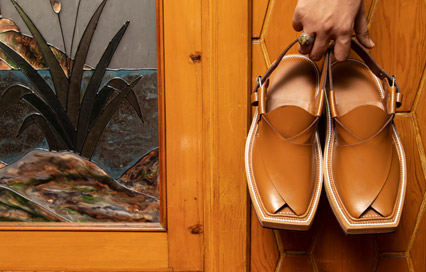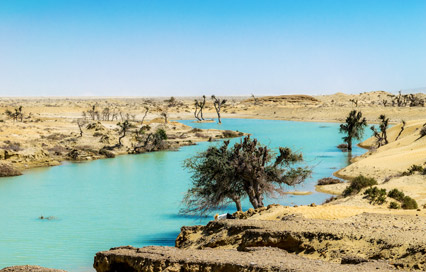Rawalpindi Islamabad: Exploring Pakistan's Dynamic Twin Cities
August 14, 2025
Pakistan's capital region offers travelers a unique experience through two interconnected cities that complement each other perfectly. Rawalpindi Islamabad presents visitors with a fascinating blend of modern urban planning and traditional bustling commerce. These cities sit just kilometers apart yet provide distinctly different atmospheres and attractions.
The twin cities serve as Pakistan's political and administrative heart, hosting government institutions, diplomatic missions, and major cultural landmarks. Together they form the country's fourth-largest metropolitan area with over 5.7 million residents. This region represents the gateway to northern Pakistan and serves as a launching point for adventures throughout the country.
Located on the scenic Pothohar Plateau against the backdrop of the beautiful Margalla Hills, the twin cities enjoy pleasant weather year-round. Their strategic position makes them ideal for exploring both urban attractions and natural beauty. The area combines Pakistan's rich history with its modern aspirations.

Rawalpindi Islamabad
Why Islamabad and Rawalpindi are Called Twin Cities
Why Islamabad and Rawalpindi are called twin cities stems from their unique geographical and socioeconomic relationship. The two cities sit adjacent to each other, forming a single contiguous metropolitan area despite having different administrative boundaries.
The term "twin cities" reflects their strong social and economic links that bind them together. Rawalpindi, established centuries earlier, erved as Pakistan’s interim capital from 1959 until the establishment of Islamabad in the late 1960s. This historical connection created deep interdependencies that continue today.
Geographic Proximity
The cities are so close that they have become nearly contiguous, forming one unified metropolitan region. Residents commonly live in one city while working in the other. The boundary between them is often invisible to casual observers, as urban development has connected both areas seamlessly.
Transportation networks link the cities effortlessly. Multiple highways and local roads provide easy movement between Rawalpindi and Islamabad. This connectivity allows the cities to function as one economic unit while maintaining distinct identities.
Economic Interdependence
High interdependence characterizes the relationship between these twin cities. Islamabad houses government offices, diplomatic missions, and planned residential sectors. Rawalpindi provides industrial infrastructure, traditional markets, and commercial services.
This complementary relationship creates mutual benefits:
- Rawalpindi supplies goods and services to Islamabad's residents
- Islamabad provides government employment for Rawalpindi workers
- Both cities share transportation and utility infrastructure
- Cultural and social exchanges occur constantly between residents

Traditional markets in Rawalpindi
Administrative Differences
Despite their twin status, the cities maintain separate administrative structures. Islamabad operates as the Islamabad Capital Territory, while Rawalpindi falls within Punjab Province. This arrangement allows each city to maintain its unique character while benefiting from their close relationship.
For international travelers planning their visit to this fascinating region, ensuring proper documentation is essential. Those needing travel authorization for Pakistan can streamline their application process through professional services.
Pakistan Islamabad Rawalpindi: A Traveler's Complete Guide
Pakistan Islamabad Rawalpindi offers visitors an incredible variety of experiences within a compact geographical area. The twin cities showcase everything from world-class architecture to bustling traditional bazaars, making them perfect for travelers seeking diverse cultural experiences.
Islamabad: The Planned Capital
Islamabad stands as one of the world's few planned capital cities, built during the 1960s as a model for modern urban design. The city features wide boulevards, organized sectors, and abundant green spaces that create a unique atmosphere among South Asian capitals.
Major Attractions in Islamabad
Faisal Mosque dominates Islamabad's skyline as is one of the largest and most iconic mosques in South Asia, known for its striking tent-inspired design and expansive courtyard that accommodates large congregations. The mosque's unique tent-like design without traditional minarets creates an iconic silhouette against the Margalla Hills.
Pakistan Monument represents the nation's unity through its distinctive petal design symbolizing Pakistan's four provinces. Located in Shakarparian Hills, the monument offers panoramic views of the twin cities. The adjacent museum showcases Pakistan's cultural heritage and historical artifacts.
Daman-e-Koh provides breathtaking viewpoints overlooking Islamabad from the Margalla Hills. This scenic spot offers hiking trails, restaurants, and photography opportunities. The drive up the winding mountain road itself becomes part of the adventure experience.

Daman-e-Koh
Educational and Cultural Institutions
Islamabad houses 16 recognized universities including prestigious institutions like Quaid-i-Azam University and the National University of Sciences and Technology. The city maintains one of Pakistan's highest literacy rates, reflecting its role as an educational center.
Lok Virsa (National Institute of Folk and Traditional Heritage) preserves and promotes Pakistan's cultural legacy. The institute offers exhibitions, performances, and educational programs about traditional crafts, music, and customs from across Pakistan.
Rawalpindi: The Historic Commercial Hub
Rawalpindi, known locally as ‘Pindi,’ is one of Pakistan’s major metropolitan centers and an important commercial hub. Unlike planned Islamabad, Rawalpindi developed organically over centuries, creating a vibrant urban landscape filled with historic bazaars, traditional architecture, and bustling street life.
Historical Significance
The city gained prominence during British colonial rule and served as Pakistan's interim capital before Islamabad's construction. This historical role created lasting infrastructure and institutions that continue serving the region today.
Rawalpindi Railway Station, opened in 1881, represents one of Pakistan's important transportation hubs. The Gothic-style building showcases colonial architecture while continuing to serve modern transportation needs.
Shopping and Commerce
Raja Bazaar stands as one of Pakistan's oldest and most vibrant traditional markets. This bustling marketplace offers everything from textiles and spices to electronics and handicrafts. The narrow streets filled with shops, vendors, and traditional snacks create an authentic Pakistani shopping experience.
Saddar Bazaar provides another major shopping destination with a mix of modern stores and traditional vendors. The area serves both local residents and tourists seeking authentic Pakistani goods.
Transportation Between Twin Cities
Moving between the twin cities is convenient and affordable:
Transport Mode | Travel Time | Cost Range | Best For |
Private Taxi | 30-45 minutes | Rs. 400-800 | Comfort and convenience |
Local Bus | 45-60 minutes | Rs. 50-100 | Budget travelers |
Ride-sharing | 30-45 minutes | Rs. 300-600 | Modern convenience |
Islamabad International Airport serves both cities, located approximately 30 minutes from central areas. The airport offers domestic and international flights, making it the primary gateway for visitors to the twin cities region.
Cultural Experiences and Local Life
The twin cities offer distinct cultural experiences that complement each other perfectly. Islamabad's planned environment attracts bureaucrats and business elites who often embrace international lifestyles. Meanwhile, Rawalpindi maintains traditional Pakistani culture with its congested roads, bustling markets, and authentic local customs.
This cultural contrast creates opportunities for visitors to experience both modern Pakistan and traditional life within the same trip. Many travelers spend mornings exploring Islamabad's monuments and museums, then afternoons shopping and dining in Rawalpindi's historic bazaars.
For visitors needing to monitor their travel document status while exploring the twin cities, both cities offer reliable internet connectivity and government services.
Cuisine and Dining
The twin cities feature excellent dining options ranging from street food to international cuisine. Traditional Pakistani dishes like biryani, karahi, and barbecued meats are available throughout both cities. Islamabad offers more international options, while Rawalpindi specializes in authentic local flavors.
Popular food experiences include:
- Traditional tea culture in Rawalpindi's chai khanas (tea houses)
- Fine dining at Islamabad's hilltop restaurants like Monal
- Street food tours through Rawalpindi's historic bazaars
- International cuisine in Islamabad's modern shopping centers
Adventure and Natural Beauty
The Margalla Hills provide numerous outdoor activities within easy reach of both cities. Hiking trails of varying difficulty levels offer spectacular views and encounters with local wildlife. The hills also house several restaurants and viewing points accessible by car.
Rawal Lake, located between the twin cities, offers boating facilities and scenic picnic spots. The lake provides a peaceful retreat from urban activity while remaining easily accessible from both cities.
Best Time to Visit
The twin cities experience varied seasons, with mild winters and warm summers, making certain times of the year especially ideal for travel. However, certain seasons offer optimal visiting conditions:
October to March: Cool, dry weather perfect for outdoor exploration April to June: Warm but manageable temperatures, ideal for sightseeing July to September: Monsoon season brings occasional rain and lush green landscapes
Accommodation Options
Both cities offer accommodations ranging from budget hostels to luxury hotels. Islamabad features more upscale options near government areas, while Rawalpindi provides budget-friendly alternatives close to traditional markets and transportation hubs.
For comprehensive information about travel requirements and visa service pricing, professional assistance ensures smooth travel planning for your twin cities adventure.
Frequently Asked Questions
What is the best way to travel between Islamabad and Rawalpindi?
The most convenient options are private taxis or ride-sharing services, taking 30-45 minutes and costing Rs. 300-800. Local buses are cheaper (Rs. 50-100) but take longer. Many visitors rent cars for maximum flexibility exploring both cities and surrounding attractions.
How many days should I spend visiting the twin cities?
A minimum of 3-4 days allows you to see major attractions in both cities. Spend 2 days exploring Islamabad's monuments, museums, and Margalla Hills, plus 1-2 days experiencing Rawalpindi's markets, historic sites, and local culture. Additional days permit trips to nearby attractions like Taxila or Murree.
Are the twin cities safe for international tourists?
Yes, both cities maintain good security due to their status as the capital region. Normal travel precautions apply: avoid isolated areas after dark, keep valuables secure, and stay aware of surroundings. The presence of diplomatic missions and government offices ensures heightened security throughout both cities.
What makes Rawalpindi and Islamabad different from each other?
Islamabad is a planned, modern city with wide roads, organized sectors, and contemporary architecture. Rawalpindi is older, more traditional, with narrow streets, historic bazaars, and dense urban development. Islamabad focuses on government and diplomacy, while Rawalpindi emphasizes commerce and industry.
Can I visit both cities in a single day?
Yes, a day trip can cover major highlights of both cities due to their proximity. Start early in Islamabad visiting Faisal Mosque and Pakistan Monument, then travel to Rawalpindi for bazaar shopping and local cuisine. However, longer stays allow deeper exploration and cultural immersion in each city's unique character.
Rawalpindi Islamabad represents one of the world's most fascinating examples of twin cities, where modern urban planning meets traditional commerce and culture. These interconnected destinations offer travelers an unparalleled opportunity to experience both contemporary Pakistan and its rich historical heritage within a single convenient location.
From Islamabad's impressive monuments and planned boulevards to Rawalpindi's bustling bazaars and authentic local life, the twin cities provide comprehensive insights into Pakistani society. The strategic location near the beautiful Margalla Hills adds natural beauty to urban attractions, while excellent connectivity makes exploration effortless for visitors.
The unique relationship between these cities creates an environment where travelers can witness Pakistan's evolution from its traditional roots to modern aspirations. Whether seeking cultural experiences, historical insights, architectural marvels, or natural beauty, the twin cities deliver memorable experiences that showcase the best of Pakistani hospitality and diversity.
For international visitors planning their journey to this remarkable destination, proper travel documentation ensures smooth entry and maximum enjoyment of your twin cities adventure. GVC offers professional visa services specifically designed to help travelers navigate Pakistani entry requirements efficiently. Their experienced team provides comprehensive support throughout the application process, allowing you to focus on planning your incredible exploration of Rawalpindi and Islamabad rather than worrying about paperwork complications. With reliable service and competitive pricing, professional visa assistance makes your travel dreams to Pakistan's twin cities a reality.
Related Articles:
- Travel To Islamabad: A Complete Guide For First Time Visitors
- Islamabad Tourist Places: The Gem Of South Asia Waiting To Enchant You
- Islamabad Sightseeing Places To The Capital's Best Attractions
- Experience A Day Trip From Islamabad: Discover A New Land In Pakistan
- Lake View Islamabad: Visiting The Capital's Scenic Gem
- Cafes In Islamabad: Where To Sip, Chill And Savor
- Islamabad To Karachi: A Journey Between Pakistan's Icons
Tags




